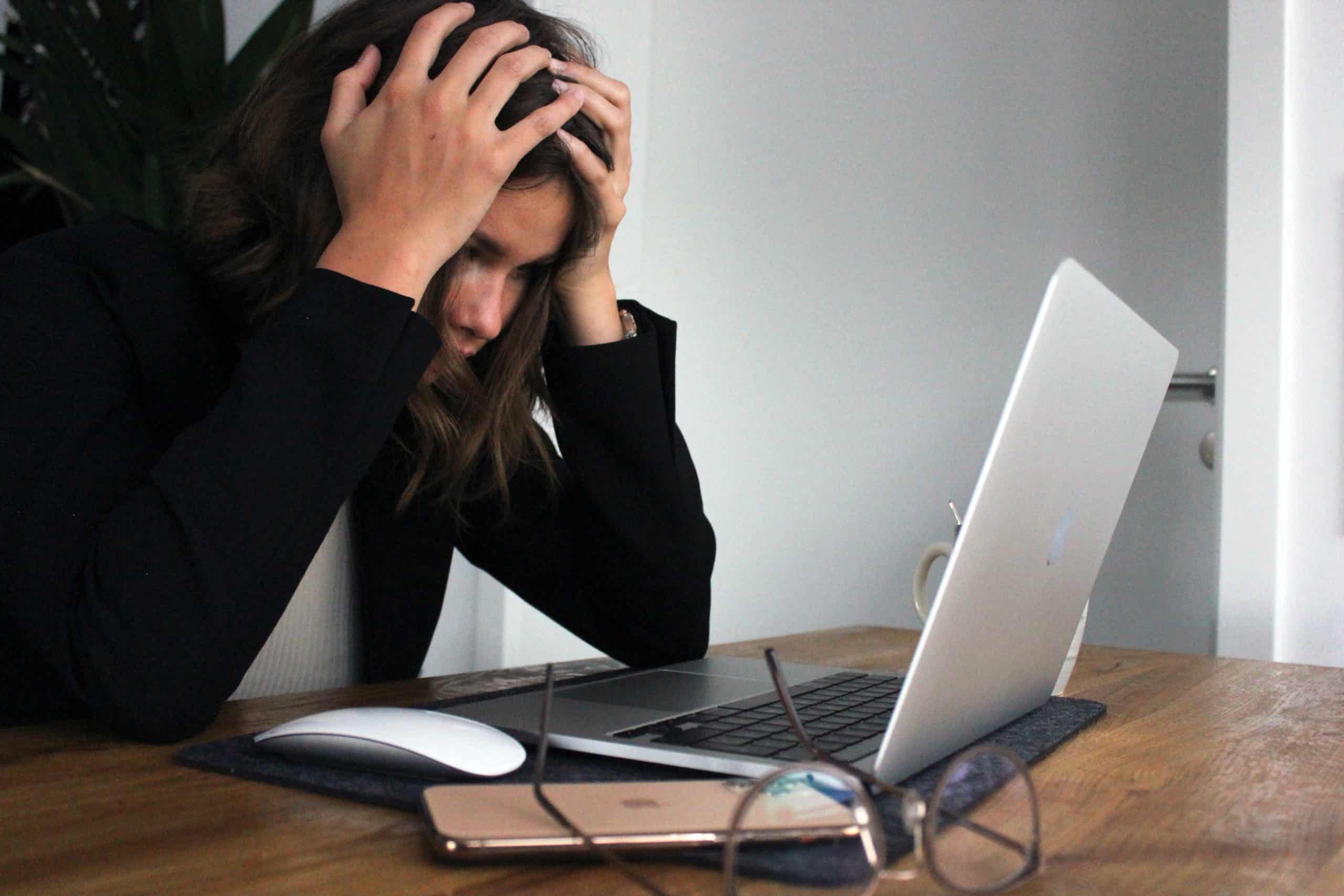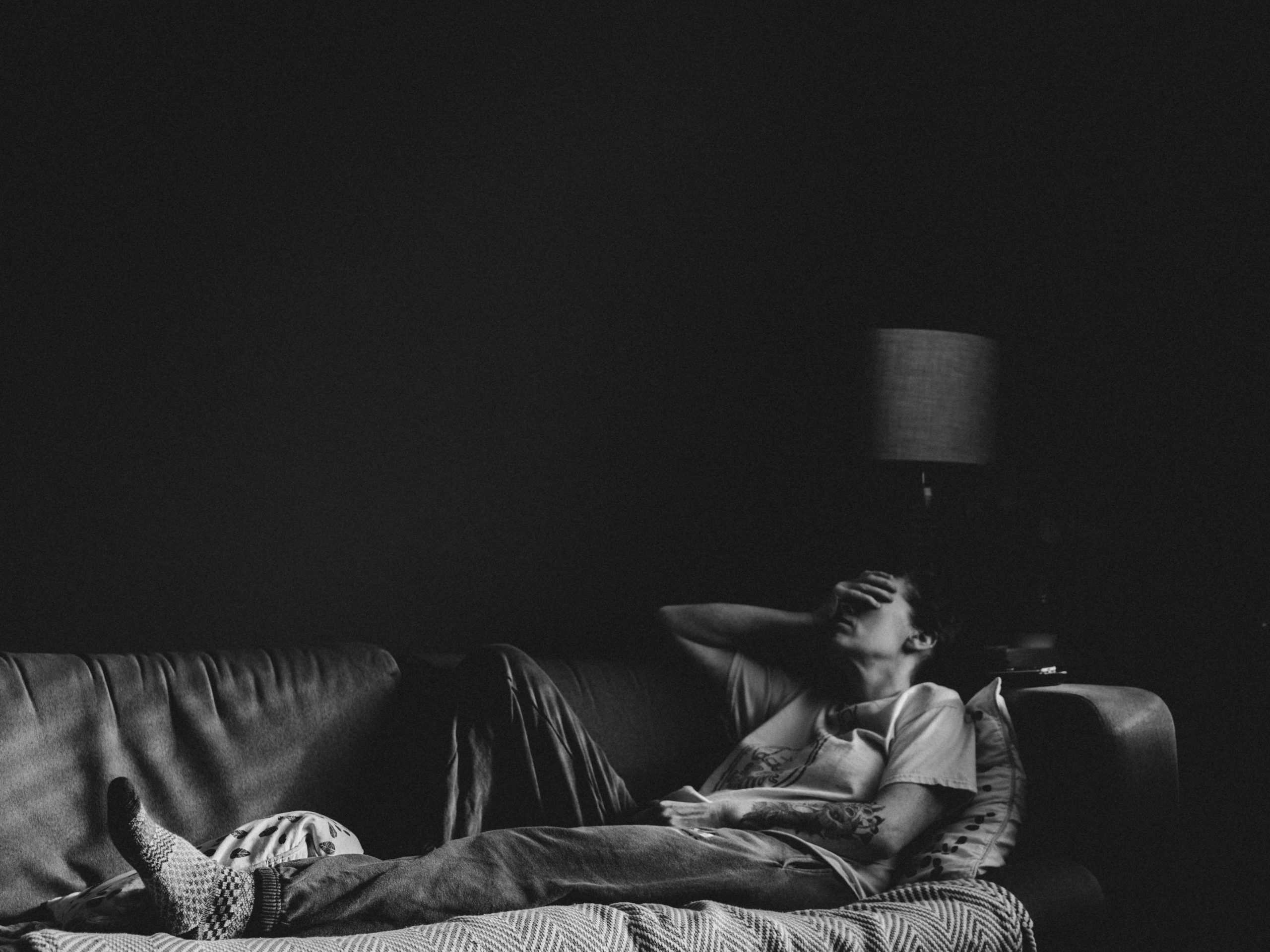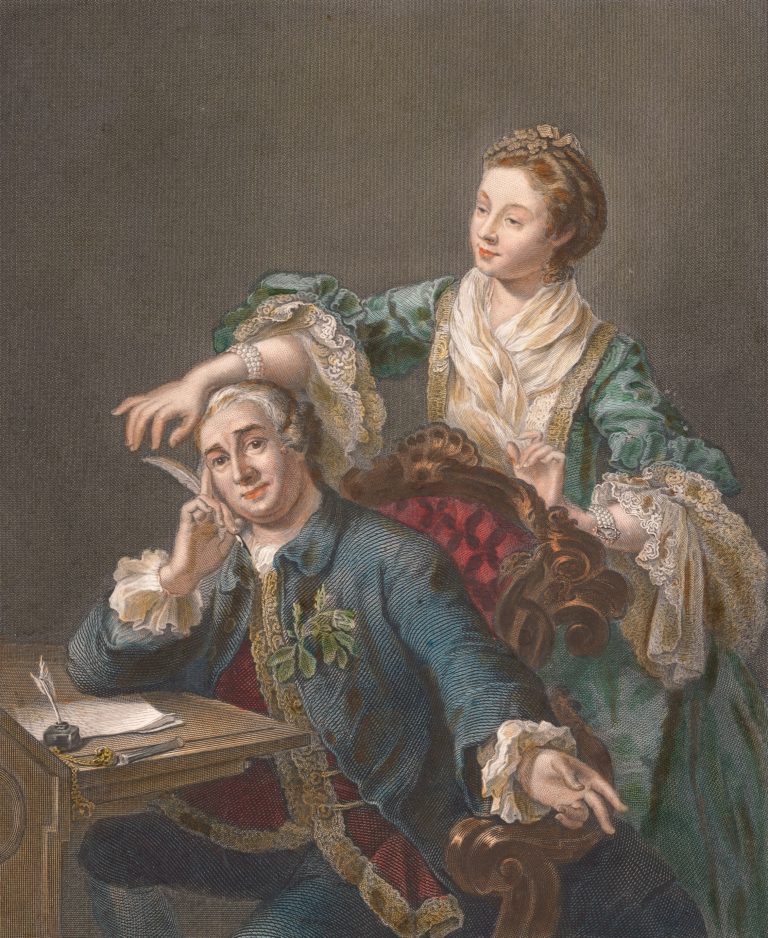Why Your HOCD Keeps Getting Worse: Unraveling the Complexities of Homosexual Obsessive-Compulsive Disorder

Navigating the intricate web of thoughts and emotions that define Homosexual Obsessive-Compulsive Disorder (HOCD) can be an overwhelming journey.
For those who grapple with this condition, the experience can be likened to a relentless tug-of-war between intrusive thoughts, debilitating anxiety, and the innate desire for relief.
While HOCD may not be officially recognized as a standalone disorder in the world of psychiatry, its impact on individuals is undeniably real and profoundly distressing.
This article embarks on an exploration of the perplexing question that haunts many individuals dealing with HOCD: “Why does it seem like my HOCD keeps getting worse?”
It delves into the multifaceted nature of this condition, shedding light on the factors that contribute to the exacerbation of symptoms, the role of cognitive patterns, and the challenges faced on the path to recovery.
Through understanding these complexities, we aim to offer insights, reassurance, and practical strategies for those seeking solace amidst the storm of HOCD.

🎁 Special Offer: 🎁 When you use our affiliate link, you’ll receive an exclusive 20% discount on Online-Therapy.com services!
Don’t miss this opportunity to invest in yourself and unlock your full potential. Start your journey to mental wellness today!
Say yes to a brighter, happier future with Online-Therapy.com!
20% discount on Online-Therapy.com services
Are you ready to take control of your mental well-being and embark on a journey towards a happier, healthier you? Look no further than Online-Therapy.com!
Experience a transformation in your mental health with the following benefits:
- Convenient & Confidential: Online-Therapy.com provides a safe and private platform for therapy sessions. Say goodbye to the stress of in-person appointments.
- Comprehensive Resources: Access a treasure trove of therapeutic resources, including worksheets, journals, and interactive tools, all designed to help you grow and heal.
- Certified Professionals: Connect with experienced and licensed therapists who are dedicated to your progress and well-being.
- Tailored Approach: Online-Therapy.com offers personalized plans designed to suit your specific needs, ensuring you receive the support you deserve.
Understanding HOCD
HOCD, or Homosexual Obsessive-Compulsive Disorder, is not officially recognized as a distinct mental health disorder in the Diagnostic and Statistical Manual of Mental Disorders (DSM-5). However, it is a term sometimes used colloquially to describe a type of obsessive-compulsive disorder (OCD) characterized by intrusive and distressing thoughts related to one’s sexual orientation.
OCD Symptoms of HOCD may include:
Intrusive thoughts: Individuals with HOCD experience recurrent and distressing thoughts questioning their sexual orientation, often fearing that they are gay or lesbian, despite evidence to the contrary.
Compulsions: People with HOCD may engage in mental or behavioral compulsions to alleviate anxiety, such as repeatedly checking their own reactions to same-sex individuals or seeking reassurance from others.
Anxiety and distress: HOCD can cause extreme anxiety, depression, and emotional distress due to the persistent and unwanted nature of these thoughts.
Impaired daily functioning: The preoccupation with these thoughts can disrupt daily life, relationships, and overall well-being.
It’s important to note that the term HOCD is not recognized by mental health professionals, and these OCD symptoms are often considered a subset of OCD or related anxiety disorders.
If you or someone you know is struggling with these OCD symptoms, it’s advisable to seek professional help from a mental health provider who specializes in OCD or anxiety disorders.
They can provide proper assessment and treatment options tailored to the individual’s needs.
Related Articles – Hit and Run OCD: What it is and How to Overcome it
Factors Contributing to HOCD Getting Worse

Let’s explore in detail some common triggers and factors that can exacerbate HOCD (Homosexual Obsessive-Compulsive Disorder) and delve into the role of intrusive thoughts and compulsions:
Stress and Anxiety
High levels of stress and anxiety can trigger or worsen HOCD symptoms.
When individuals are under stress, their ability to cope with intrusive thoughts and compulsions may be compromised, leading to increased distress.
Life Transitions
Major life changes, such as starting a new job, moving to a different city, or experiencing a breakup, can exacerbate HOCD.
These transitions often bring uncertainty, which can intensify obsessive thoughts.
Relationship Issues
Relationship problems, including conflicts or doubts about one’s partner or sexual compatibility, can heighten HOCD symptoms.
The fear of being in the wrong relationship may trigger intrusive thoughts.
Social Pressures
Societal attitudes and expectations related to sexuality can contribute to HOCD.
For instance, if someone grows up in an environment where non-heterosexual orientations are stigmatized, they may be more prone to obsessions and anxieties regarding their own sexuality.
Trauma or Past Experiences
Traumatic experiences or past events related to sexuality can be triggers. These memories can resurface and lead to obsessive thoughts about one’s sexual orientation.
Media and Information Overload
Exposure to media, especially sensationalized or negative portrayals of non-heterosexual orientations, can intensify HOCD. Media can inadvertently reinforce doubts and fears.
Compulsions and Avoidance Behaviors
Individuals with HOCD often engage in compulsive behaviors to alleviate anxiety.
These might include excessive internet research on sexual orientation, seeking reassurance from others, or comparing oneself to others.
These compulsions, while offering short-term relief, actually reinforce the obsessions, making them worse over time.
Avoidance of Triggers
Paradoxically, avoiding situations or people that trigger HOCD can worsen the condition.
Avoidance reinforces the belief that these situations are indeed threatening, perpetuating the cycle of obsessive thoughts.
Lack of Understanding and Support
A lack of understanding from friends, family, or society can exacerbate HOCD. It may lead to feelings of isolation and further intensify the emotional distress associated with these thoughts.
Perfectionism
Perfectionistic tendencies can contribute to HOCD. People may strive for absolute certainty about their sexual orientation, which is impossible to achieve, leading to an increase in intrusive thoughts.
It’s important to recognize that HOCD is a complex and multifaceted condition. The role of intrusive thoughts and compulsions is central.
Intrusive thoughts are distressing and unwanted, while compulsions are attempts to neutralize or alleviate the anxiety caused by these thoughts.
Paradoxically, engaging in compulsions tends to strengthen the obsessions, creating a vicious cycle.
Understanding these dynamics and seeking professional help, such as cognitive-behavioral therapy (CBT) with exposure and response prevention (ERP), can be crucial in managing and mitigating the impact of HOCD triggers and symptoms.
Related Articles – Denial OCD: The OCD Backdoor Spike
Exploring the Realness of HOCD

The existence of HOCD (Homosexual Obsessive-Compulsive Disorder) is a topic that has generated debate within the field of psychology and psychiatry.
While it’s not officially recognized as a distinct disorder in the Diagnostic and Statistical Manual of Mental Disorders (DSM-5), some mental health professionals and researchers acknowledge the phenomenon based on clinical observations and studies.
Here’s an exploration of the realness of HOCD and the evidence supporting its existence:
Clinical Observations
Mental health practitioners have reported cases of individuals experiencing distressing and intrusive thoughts related to their sexual orientation.
These individuals often seek help due to the significant emotional turmoil these thoughts cause.
Overlap with OCD
HOCD is often considered a specific manifestation of Obsessive-Compulsive Disorder (OCD).
OCD itself is a recognized mental health condition characterized by intrusive thoughts (obsessions) and repetitive behaviors (compulsions) that cause significant distress.
Given that HOCD shares these characteristics, it suggests that it is a real phenomenon.
Research Studies
While limited in number, some research studies have explored the experiences of individuals with OCD symptoms resembling HOCD.
These studies have found that these individuals often exhibit patterns of obsessive thinking and compulsive behaviors similar to those with other forms of OCD.
One such study, published in the Journal of Anxiety Disorders in 2014, examined individuals with sexual orientation-related OCD symptoms and found that these symptoms were associated with significant distress and impairment.
Clinical Treatment Success
Mental health professionals who specialize in the treatment of OCD often report success in treating individuals with HOCD symptoms using evidence-based therapies such as Cognitive-Behavioral Therapy (CBT) and Exposure and Response Prevention (ERP). This suggests that there is a clinical need for addressing these symptoms.
Patient Self-Reports
Many individuals who experience HOCD report significant distress, anxiety, and impairment in their daily lives due to these thoughts.
These self-reports provide further evidence of the realness of the condition from the perspective of those who suffer from it.
Debates and Challenges
It’s important to note that the debate around HOCD primarily revolves around whether it should be considered a distinct diagnosis or categorized under existing diagnostic categories, such as OCD or anxiety disorders.
Critics argue that it may pathologize normal questioning of one’s sexuality. However, proponents emphasize the severe distress and impairment experienced by individuals with these symptoms.
In summary, while HOCD is not officially recognized as a separate disorder in the DSM-5, there is clinical and research evidence suggesting the existence of a phenomenon where individuals experience distressing and intrusive thoughts about their sexual orientation.
Mental health professionals often treat these individuals, and therapeutic interventions have shown efficacy in reducing their distress.
The ongoing debate centers on how best to categorize and address these symptoms within the broader context of mental health care.
Related Articles – Can OCD be Misdiagnosed as BPD?
Strategies for Managing HOCD Anxiety
Managing HOCD (Homosexual Obsessive-Compulsive Disorder) anxiety involves using OCD treatment from Cognitive Behavioral Therapy (CBT) and developing practical strategies to reduce distress and manage intrusive thoughts.
Here are detailed strategies:
Identify and Challenge Cognitive Distortions
Thought Labeling: Recognize when intrusive thoughts related to your sexual orientation arise and label them as obsessions.
Thought Record: Keep a journal of these thoughts, writing down what triggered them and any associated distress. Challenge irrational beliefs with evidence-based counterarguments.
Exposure and Response Prevention (ERP)
- Gradual Exposure: Under the guidance of a therapist, expose yourself gradually to situations or thoughts that trigger your sexual orientation OCD. This desensitizes you over time and is an excellent OCD treatment option.
Response Prevention: Refrain from engaging in compulsive behaviors or seeking reassurance when confronted with intrusive thoughts.
Mindfulness and Relaxation Techniques
Mindfulness Meditation: Practice mindfulness exercises to stay present and detached from intrusive thoughts. Focus on your breath or a mantra.
Progressive Muscle Relaxation: Relax your body systematically to reduce physical tension caused by anxiety.
Acceptance and Commitment Therapy (ACT)
Values Clarification: Identify your core values and what you want in life. Understand that intrusive thoughts don’t define your identity.
Defusion Techniques: Learn to defuse from your thoughts, seeing them as mere mental events rather than absolute truths.
Self-Care and Stress Management
Regular Exercise: Physical activity can reduce anxiety and improve overall well-being.
Healthy Lifestyle: Maintain a balanced diet, get enough sleep, and avoid excessive caffeine or alcohol, which can worsen anxiety.
Social Support
Talk to Trusted Individuals: Share your experiences with friends, family, or support groups who can provide understanding and emotional support.
Set Limits on Rumination
Scheduled Worry Time: Designate specific times during the day to allow yourself to worry about HOCD. Outside of these times, gently redirect your thoughts to other topics.
Professional Help
Find a CBT Therapist: Seek a therapist who specializes in treating OCD or anxiety disorders. They can guide you through evidence-based techniques and provide tailored support to treat ocd.
Medication
Consult a Psychiatrist: In some cases, medication may be prescribed, such as selective serotonin reuptake inhibitors (SSRIs), to manage anxiety and intrusive thoughts. Consult a psychiatrist for a proper assessment.
Self-Compassion
Practice Self-Kindness: Be gentle with yourself and recognize that having HOCD does not define your worth or character.
Remember, managing sexual orientation OCD takes time and consistent effort. It’s crucial to work with a mental health professional who can provide personalized guidance and support.
CBT techniques, combined with practical strategies, can empower you to regain control over your thoughts and reduce the distress associated with HOCD.
Patience and persistence are key on this journey towards better mental well-being.
Related Articles – Is OCD a Type of Autism?
When HOCD Gets Worse Before It Gets Better

Experiencing a worsening of HOCD (Homosexual Obsessive-Compulsive Disorder) symptoms during treatment is not uncommon, and it can be distressing.
However, it’s essential to understand that this phenomenon is a part of the treatment process, and it doesn’t mean that therapy is ineffective or that you won’t eventually see improvement.
Here’s a detailed explanation and reassurance for individuals going through this challenging phase:
The “Therapy Worsening” Phenomenon
Initial Anxiety Surge: When you begin therapy, especially Cognitive Behavioral Therapy (CBT) with Exposure and Response Prevention (ERP), you may experience an initial surge in anxiety. This is because you’re deliberately confronting the thoughts and situations that trigger your HOCD.
Resistance to Change: Your brain, accustomed to using compulsions to temporarily alleviate anxiety, may resist change. It might intensify intrusive thoughts and compulsive behaviors to try to maintain the status quo.
The Role of Habituation
Habituation Process: In therapy, the goal is to habituate your brain to the thoughts and situations that provoke anxiety. This means exposing yourself to these triggers repeatedly and without engaging in compulsions.
Temporary Escalation: During this process, it’s not unusual for anxiety and intrusive thoughts to temporarily intensify. Your brain is learning that these thoughts are not genuine threats, but it takes time to unlearn the patterns of anxiety.
Reassurance for Individuals
Temporary Nature: Understand that the worsening of symptoms is often temporary. It’s a sign that you’re actively challenging your OCD patterns.
Evidence of Progress: Paradoxically, symptom worsening can be seen as a positive sign of progress. It means you’re confronting the disorder head-on, which is a crucial step toward long-term improvement.
Therapist Support: Lean on your therapist for support and guidance during this phase. They are well-aware of the therapy worsening phenomenon and can help you navigate it.
Self-Care and Coping Strategies
Self-Compassion: Be kind to yourself during this challenging time. Remember that you’re taking steps toward healing.
Distraction Techniques: Engage in enjoyable activities or hobbies to redirect your focus away from intrusive thoughts.
Mindfulness: Continue practicing mindfulness to stay grounded and nonjudgmental toward your thoughts.
Staying Committed to Therapy
Consistency is Key: The most significant improvements often come after persevering through the tough phases. Staying committed to your therapy plan is crucial.
Communication with Therapist
Open Dialogue: Maintain open communication with your therapist about your experiences. They can adjust the treatment plan as needed and offer additional support.
Remember, the road to recovery from HOCD can be challenging, and setbacks are a normal part of the process.
Your therapist is there to guide you through these difficult moments, and with time and consistent effort, you can achieve significant relief from HOCD symptoms.
You are not alone in this journey, and many individuals have successfully overcome HOCD through evidence-based treatment. Stay resilient, and better days lie ahead.
Related Articles – Does OCD Go Away With Age? (It Doesn’t)
Alternative Methods of Therapy and Healing
In addition to Cognitive Behavioral Therapy (CBT) with Exposure and Response Prevention (ERP), several alternative therapeutic approaches and complementary strategies can be considered when managing HOCD (Homosexual Obsessive-Compulsive Disorder).
It’s essential to remember that while these methods can be helpful, it’s crucial to seek professional help and support from a mental health provider who specializes in OCD or anxiety disorders.
Here are alternative methods and their importance:
Acceptance and Commitment Therapy (ACT)
Principles of ACT: ACT encourages individuals to accept their intrusive thoughts and feelings without judgment while focusing on actions aligned with their values.
Benefits: ACT can help individuals detach from their HOCD thoughts, reducing the emotional distress associated with them.
Mindfulness-Based Therapies
Mindfulness-Based Stress Reduction (MBSR) and Mindfulness-Based Cognitive Therapy (MBCT): These therapies incorporate mindfulness meditation and awareness techniques to help individuals stay grounded and reduce reactivity to intrusive thoughts.
Benefits: Practicing mindfulness can promote emotional regulation and resilience.
Dialectical Behavior Therapy (DBT):
Emotion Regulation Skills: DBT teaches skills to manage intense emotions, which can be particularly useful for individuals experiencing distress related to HOCD.
Benefits: Improved emotional regulation can lead to decreased anxiety and better coping with intrusive thoughts.
Group Therapy and Support Groups
Connection and Understanding: Joining a group therapy session or a support group for OCD can provide a sense of community and understanding. Hearing others’ experiences can be reassuring.
Benefits: Sharing experiences and coping strategies with peers can be a valuable part of the healing process.
Art and Expressive Therapies
Creative Expression: Engaging in art, music, or other expressive therapies can help individuals process their emotions and thoughts related to HOCD in a nonverbal way.
Benefits: Creative outlets can provide a sense of release and self-expression.
Holistic Approaches
Yoga, Meditation, and Acupuncture: These holistic practices can complement traditional therapy by promoting relaxation, reducing stress, and improving overall well-being.
Benefits: Holistic approaches can contribute to a more balanced and centered state of mind.
Medication Consultation
Psychiatric Evaluation: Consulting with a psychiatrist can help determine if medication, such as selective serotonin reuptake inhibitors (SSRIs), is appropriate in conjunction with therapy.
Benefits: Medication can help manage the symptoms of anxiety and obsessive thoughts.
Self-Help Resources
Books and Apps: There are many self-help books and apps available that offer guidance and exercises for managing intrusive thoughts and anxiety.
Benefits: These resources can complement professional treatment and provide additional tools for self-management.
It’s essential to emphasize the importance of seeking professional help and guidance when dealing with HOCD. Mental health professionals can assess your specific needs, tailor treatment, and provide ongoing support.
HOCD can be a complex and distressing condition, but with the right therapeutic approach and a support network, individuals can make significant progress towards managing their symptoms and improving their quality of life.

🎁 Special Offer: 🎁 When you use our affiliate link, you’ll receive an exclusive 20% discount on Online-Therapy.com services!
Don’t miss this opportunity to invest in yourself and unlock your full potential. Start your journey to mental wellness today!
Say yes to a brighter, happier future with Online-Therapy.com!
20% discount on Online-Therapy.com services
Are you ready to take control of your mental well-being and embark on a journey towards a happier, healthier you? Look no further than Online-Therapy.com!
Experience a transformation in your mental health with the following benefits:
- Convenient & Confidential: Online-Therapy.com provides a safe and private platform for therapy sessions. Say goodbye to the stress of in-person appointments.
- Comprehensive Resources: Access a treasure trove of therapeutic resources, including worksheets, journals, and interactive tools, all designed to help you grow and heal.
- Certified Professionals: Connect with experienced and licensed therapists who are dedicated to your progress and well-being.
- Tailored Approach: Online-Therapy.com offers personalized plans designed to suit your specific needs, ensuring you receive the support you deserve.
Final Thoughts on Why HOCD Keeps Getting Worse
In the labyrinth of Homosexual Obsessive-Compulsive Disorder (HOCD), where intrusive thoughts and paralyzing anxieties dominate, the journey to recovery is rarely straightforward. Throughout this exploration of why HOCD may appear to worsen before it gets better, we’ve uncovered crucial insights into the intricate nature of this condition.
It’s crucial to remember that you are not alone in your struggle with HOCD. The journey to healing often involves confronting fears head-on, sometimes experiencing temporary discomfort along the way. The apparent worsening of symptoms during treatment is, in fact, a sign of progress, signaling your bravery in tackling the disorder.
Professional help is the compass that can guide you through these challenging moments. Whether it’s Cognitive Behavioral Therapy (CBT), Exposure and Response Prevention (ERP), mindfulness, or holistic approaches, there are tools and strategies to help you regain control over your thoughts and your life.
In the pursuit of relief from HOCD, self-compassion is your steadfast ally. Be patient with yourself, acknowledge your courage, and keep your eyes on the horizon of a brighter, anxiety-free future. While the path may be arduous, the destination is worth every step.
HOCD may seem like a relentless foe, but with the right support, understanding, and perseverance, you can emerge from its grip stronger, more resilient, and on the path to a life where intrusive thoughts no longer hold you captive. The journey is challenging, but it is also a testament to your strength and resilience as you work towards reclaiming your peace of mind and a brighter tomorrow.

